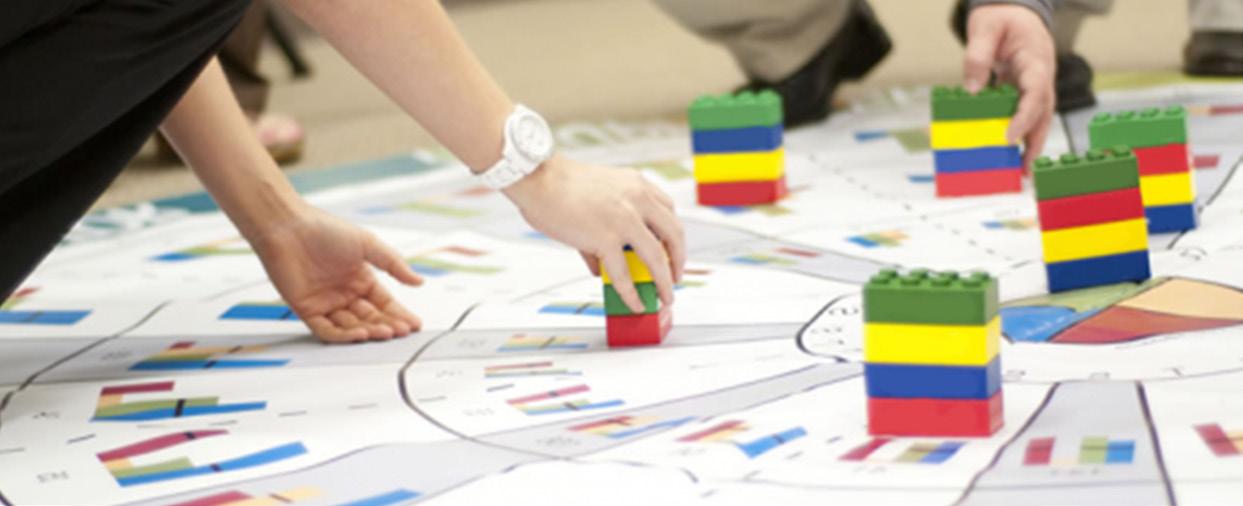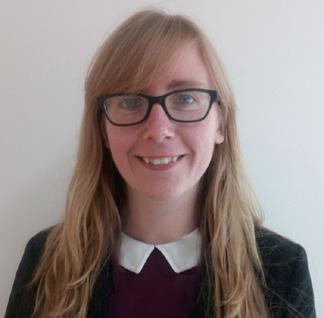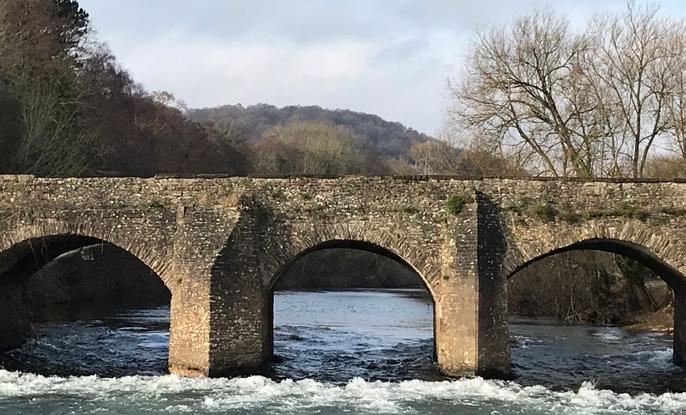
6 minute read
CPD / Mentoring
CPD
CPD - A MATTER OF RECORD
Advertisement
Hopefully all our members are familiar with the concept of Continuing Professional Development (CPD) – participation is a requirement of any corporate membership and professional registration with the Institute of Water.
That said, the Institute takes a flexible view of the sorts of CPD activities members participate in and how they record them. We firmly believe that learning should be about “quality not quantity” and accept a range of approaches because our membership, while united by working in the water industry, represents a diverse range of professions. This means there is no fixed number of hours of CPD that members must complete each year; however members could be asked to submit their CPD record to the Institute if selected as part of our annual monitoring exercise.
So what does a CPD record need to look like? It can be pretty much anything that suits you, provided it enables you to accurately record your learning activities and evaluate how effect they’ve been. You are far more likely to persist with a rigorous approach to CPD if you’ve found a way of recording it that suits you.
Matt Bower, our CPD Champion, says “We see a wide variety of ways in which our members record their learning – MS Word and Excel templates are common.
Sometimes an employer will specify how CPD is to be recorded and provide a template. Some water companies have excellent CPD templates, and several winning entries to our CPD Award have been on these in recent years. There is absolutely nothing wrong in developing your own recording method, though – and don’t be afraid to adjust if it you find that it isn’t working for you.”
A CPD record is about much more than simply a list of events that you have attended. There are some elements that it needs to contain:
■ A brief, accurate description of what you did or attended ■ Specific details including date and location ■ An evaluation of the learning in terms of how it benefitted you (this is the reflection part that we often refer to in the CPD cycle) ■ An assessment of how this impacts learning objectives – have you met them
completely, do you need to do a bit more or change direction entirely? ■ Any other information that you can usefully include, such as how your learning benefitted others
Most members are aware of the Institute’s CPD portal, one of the benefits of membership. This online tool guides you through the whole CPD cycle to ensure that you don’t miss anything. Using the portal is not compulsory, but it’s a great way of methodically producing a development plan and CPD record that can easily be shared with the Institute if you are selected to participate in our CPD monitoring.
Matt goes on “We do recommend our portal because it sets everything out so clearly – especially useful if you are just starting out with CPD and don’t quite know where to start. If you choose to use your own recording template, that’s completely fine, but it needs to contain all the elements of the CPD cycle and not simply be a long list of training courses.”
The Institute’s CPD Portal – Where Do I Start?
First create your Development Plan. This is where you set out your ideas for how you want to progress and any skills gaps you need to fill. You could make a new Development Plan every year or keep the same one updated.
Add some Development Aims – these are quite high level, a way of grouping your more specific goals together. It’s fine to just have a single Aim! Add some Development Goals – these need to be quite specific, with completion dates. An example could be “Improve my Communication Skills”. You can then add individual Development Activities, such as speaking at an event or writing an article.
Each activity can be evaluated to record what you got out of it and how it affects your wider development goal. You can mark the activity as “Complete” or ongoing. Each section of the portal is accompanied by clear guidance to help you on the way!

MENTORING
5 YEARS OF MENTORING
The Institute of Water occupies a unique niche within the UK water sector. It is peer-driven and caters to every profession working nationally to ensure the public are supplied with water.

by Rob Bradley
Chair, Scottish Area Committee Director, Fluid Solutions (Scotland)
Drawing on the legacy of the founding of the Institute, where the natural need to share and exchange knowledge and best practices between water officers led naturally to establishing a virtual mentoring matchmaking platform in 2016. I joined the scheme in 2017, as I began to become more involved in the Scottish area committee and as both a mentor and mentee, it was one of the best actions I have taken in my water career to date. The majority of volunteers within the Institute devote our time and expertise because we want to help members get the most out of their involvement. Mentoring simply provides a formal way to speak with each other in a structured setting.
Initially, I helped mentees with their individual journeys to professional registration, following paths through ample guidance from the Engineering Council and Society for the Environment to help them articulate how to achieve and maintain professional competence. This activity is particularly rewarding for someone such as myself who came into the water family in my late 30’s. By sharing my own experiences of transitioning from conservation and hospitality sectors into the sphere of water shows mentees how to value and shape their own routes within their career development.
Along the way, and under the careful guidance from my own mentor, it has been fulfilling to help people grow in self-confidence, refine and identify their leadership styles through emphasis on the importance of soft skills.
In closing, the challenges of the Covid era have meant total reliance on virtual meeting places. The challenges using these tools has meant significantly more emphasis on gradual trust building with careful listening. Although I look forward to in-person meetings, it is unlikely that I would have had the good fortune to accept new mentees from across the UK.
WHY MENTOR – THE BENEFITS

by Ceris Van de Vyver
Head of Technology, Isle.
Numerous studies show the positive effects of mentoring and benefits to becoming a mentor. Having the right mentor can help keep employees engaged, productive and motivated. I worked in the water industry for over 15 years before I realised, I had the passion, industry knowledge and expertise to become an effective mentor. When Institute of Water introduced a mentoring opportunity 5 years ago, I signed up! It’s a fun informal way to build networks and develop your own skills and experience, but more than anything it is incredibly rewarding to help someone develop their career.
One person I mentored was finding it difficult to build a professional relationship with their boss. I was able to provide support and give them a sounding board. A few years on and they are thriving - gaining company and industry standing and even taking on mentoring roles themselves. Another was in a transformation project role that was coming to an end, so we worked together to clarify where their strengths were and focus on their next ideal role. This gave them the confidence to approach senior management to discuss their next career move. It was a success.
I have been lucky enough to have some great mentors during my time in the water industry, and still do. I know I can pick up the phone and discuss any aspect of my work life with them, and in these challenging and changing times, it is so important to talk.Becoming a mentor is my way of paying it forward.








